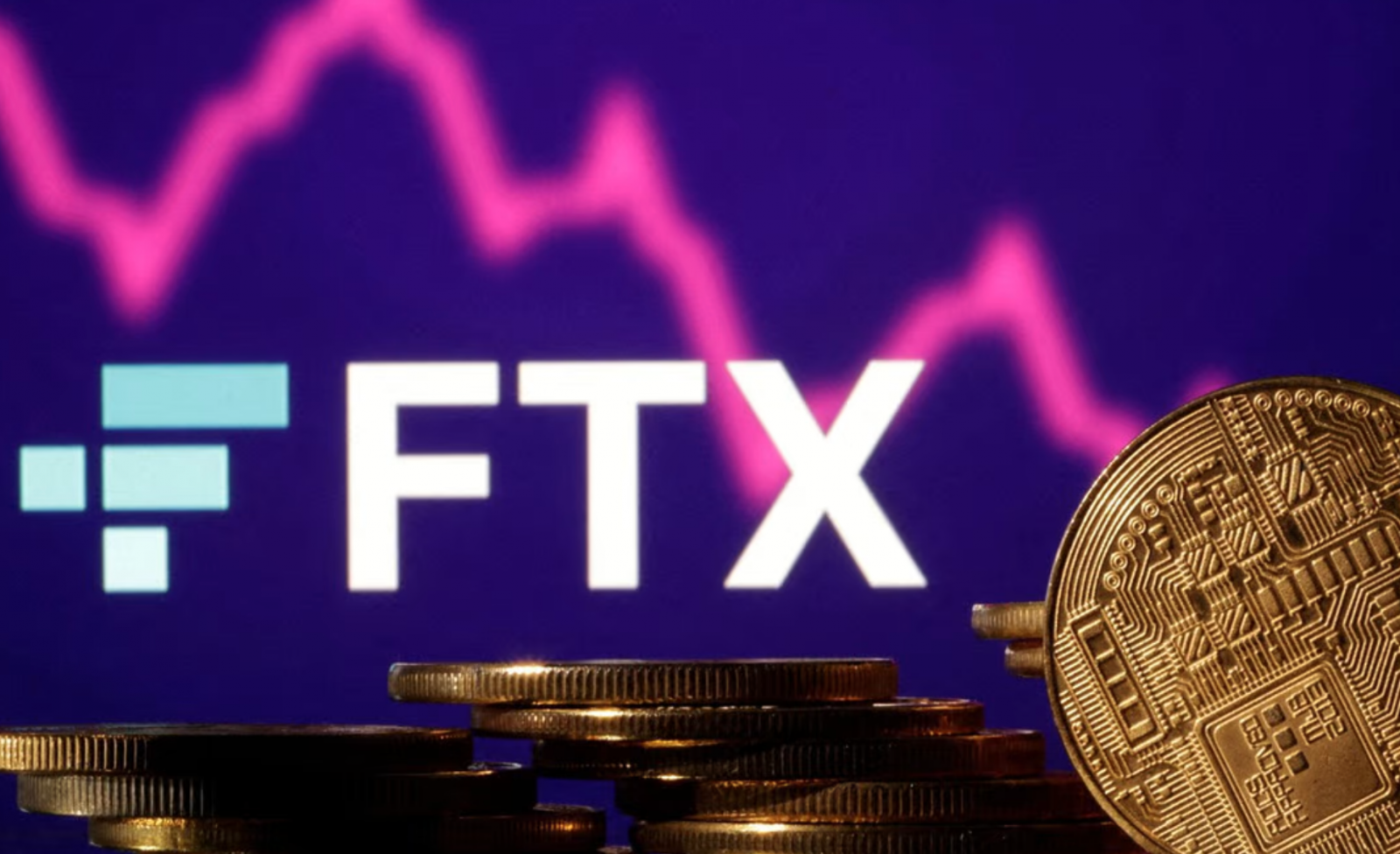Has the “Lehman Brothers moment” of cryptocurrency arrived?
- Tram Ho
The sudden collapse of FTX, the world’s second largest cryptocurrency exchange, earlier this month dealt a blow to the crypto world. The contagion seems to have spread throughout the ecosystem with crypto lender BlockFi nearing bankruptcy, and exchanges like Crypto.com and Binance issuing statements assuring investors that they will not collapsed. However, many people still fear that the “Lehman Brothers moment” of cryptocurrency has come…

After what was revealed about the severity of the financial hole in the crypto empire FTX, the exchange has only $900 million in liquid assets, compared to $9 billion in liabilities. right before it fell
Fueled by previous concussions, such as the Terra Luna stablecoin crash and crypto bank Celsius Network, this crisis has caused the 2022 crypto winter to not only lengthen, but also deepen the freeze. According to the assessment, the crisis has wiped more than 2 trillion USD from the global cryptocurrency market in the past 12 months.
After what was revealed about the severity of the financial hole in the crypto empire FTX, the exchange has only $900 million in liquid assets, compared to $9 billion in liabilities. right before it crashed.
While much is still unknown about the circumstances that led to FTX’s demise, the governance and financial control of the head is surprisingly weak. Specifically, FTX has lent billions of dollars of customer assets to finance risky bets belonging to the exclusive trading company of FTX CEO – Alameda Research, setting the stage for the collapse of the business. Karma.
For now, the aftermath of the FTX crisis has only just begun. Reputation damage to cryptocurrencies, especially institutional adoption of digital assets, is critical while the scope for financial contagion grows stronger.
Before that, investors didn’t understand well that FTX was a ticking time bomb. Financial excess contributed to the collapse, with rapid leveraged growth, reckless investment and heavy losses sure to return when the era of cheap money is over, putting the finances of the companies and countries under much stricter scrutiny.
As can be seen, the collapse of FTX is the third major financial “bomb” to explode since the US Federal Reserve started raising interest rates aggressively in June. It is also the easiest to predict. due to the boom in the crypto space earlier this year, contributing to the price of Bitcoin, the dominant cryptocurrency, down 73% since its peak in November 2021.
A Fintech expert said that in the banking and finance sector, there is a very important principle that is strictly regulated in legal documents that “if an organization holds/manages customers’ money, the organization will That organization must separate the company’s money from the customer’s money and is not allowed to use the customer’s money for purposes other than the purpose originally agreed upon.
In cases where customers are allowed to hold money for investment and business purposes (such as credit institutions, investment funds), there must always be strict risk control and management measures to ensure customer interests.
“ This is also a great lesson for investors and funds. Innovative technology or business model is not all in running a business, but also respecting the principles and theories of “traditional” financial management . The result is a generation of companies with childish or fraudulent business models like the boss of this FTX, the expert said.
Legislators headache
At this past week’s V20 Summit in Bali, Indonesia – an official G20 event and the top-level dialogue of the crypto industry ‘s governing body, the delegates were left scratching their heads over what to expect.

The absence of clear laws has allowed dubious, over-leveraged platforms like FTX to become the mainstay of the decentralized industry.
Summit President Mark Pesce said in his opening remarks: “ The industry that emerges after FTX will hopefully not be the same industry that existed before FTX. That is simply not allowed, for both political and financial reasons. We are on a very difficult road .”
The urgency to strengthen cryptocurrency supervision is building. However, despite policy proposals from industry bodies and efforts by international standard-setters to guide governments, effective regulation has been hampered where it really matters. important. While there are some leaders who have noticed the field like Singapore or Switzerland, many countries have yet to put in place a complete regulatory framework for digital assets.
The absence of clear laws has allowed dubious, over-leveraged platforms like FTX to become the mainstay of the decentralized industry. Now, as their shoddy foundations begin to crumble, they pose a systemic risk to the entire ecosystem. The adoption of international standards between countries is not only slow but also very fragmentary.
Loretta Joseph, who has advised a number of countries on virtual asset management as Vice President of the ADC Global Advisory Group, said: “ We need clarity and legal consistency for with definitions, a globally standard term, from which to get a better idea of how to proceed ”.
Clarifying these provisions should be a priority, especially now that other international standard-setting bodies, such as the Financial Stability Board (FSB) are entering the fray.
FSB officials said at the V20 conference that the FTX crisis has so far not threatened stability in the broader financial system, but the growing role of cryptocurrencies means that Similar events in the near future may cause systemic risk.
The FSB released an advisory document last month outlining nine recommendations based on the “ same activity, same risk, same regulation ” principle, signaling the intention to adopt the same standards as outlined in the FSB. use in traditional finance for cryptocurrencies. The agency is currently gathering feedback and aims to finalize these standards at next year’s G20 summit in New Delhi and start looking at a worldwide rollout by 2025.
Meanwhile, the International Organization of Securities Commissions, the global securities regulator, has also established a watchdog force for the crypto market this year, with policy recommendations by year-end. 2023. Their mandate includes protecting investors from asset loss in events such as the collapse of FTX, which has now affected approximately one million creditors.
However, if these institutions face hurdles, it could be years before the stability and investor protection guidelines are widely adopted. Certainly the ecosystem will not be able to survive for long without proper protection measures.
Source : Genk
